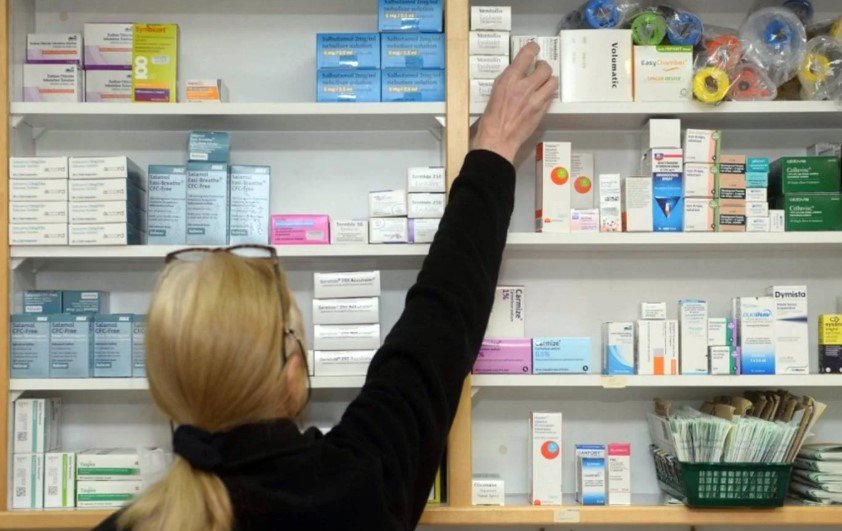White House aims to outpace Biden-era savings; insulin and epinephrine pricing to be slashed for low-income patients
WASHINGTON, D.C. – President Donald Trump signed a sweeping executive action Tuesday aimed at reducing prescription drug prices, marking a renewed effort to deliver on a key campaign promise as the 2024 general election cycle heats up. The action focuses on expanding Medicare price negotiations and resurrecting low-cost insulin and epinephrine programs for low-income Americans.
In a background briefing ahead of the signing, a White House official said the new measures are designed to deliver “greater savings than the Biden administration” and to accelerate the impact of the Inflation Reduction Act’s drug negotiation provisions, which Trump has previously criticized but is now leveraging to expand cost-cutting mechanisms.
Medicare Drug Price Negotiations: Faster Expansion, Delayed Impact
At the heart of the executive action is a commitment to speed up Medicare’s ability to negotiate drug prices, particularly for oral medications, which face fewer logistical hurdles than injectables.
Under the Inflation Reduction Act, the Department of Health and Human Services (HHS) began negotiating prices for 10 high-cost drugs in 2024, with another 15 drugs—including blockbuster diabetes medication Ozempic—slated for negotiation this year. Those Biden-era savings, however, won’t take effect until 2026.

The Trump administration’s negotiated prices from the new executive action wouldn’t take effect until 2027, reflecting the legal and logistical timeline built into the original legislation.
Still, administration officials say that scaling up the program now is critical to compounding savings over time. “We are confident we will eclipse the savings the Biden administration achieved in the first year,” the White House official said.
Insulin, Epinephrine Relief for Low-Income Americans
A signature element of Tuesday’s action revives a low-cost insulin and epinephrine program first launched during Trump’s first term. Under the updated version, low-income individuals and the uninsured could pay as little as:
-
3 cents per vial of insulin, plus an administrative fee.
-
$15 per auto-injector for epinephrine, commonly used to treat severe allergic reactions.
The program is expected to operate through federal health centers and pharmacies that partner with HHS. Critics of past iterations, however, have pointed out limited access points and low awareness among eligible patients.
“The president is leveraging current programs to deliver meaningful cost savings here,” the official emphasized, framing the revival as both a practical solution and a political signal to economically vulnerable voters.
Tariffs on Pharmaceuticals Looming?
In a potential counterweight to the cost-saving efforts, the administration may impose tariffs on imported drugs and the active pharmaceutical ingredients (APIs) used in domestic manufacturing.
A Commerce Department notice filed Monday disclosed an investigation into the national security implications of relying heavily on foreign drug supply chains—especially from China and India. The findings could pave the way for new trade barriers.
While framed as a move to reshore pharmaceutical manufacturing, health economists warn that tariffs could drive up prices for many common medications in the short term.
“This is a real fork in the road,” said one healthcare policy analyst. “Trump’s trying to prove you can lower drug costs and be tough on China at the same time. But those goals can conflict unless the domestic production ramp-up happens fast.”
Political and Economic Calculus
Tuesday’s executive action comes as prescription drug costs remain a top concern for U.S. voters, especially among seniors. Polling shows bipartisan support for Medicare negotiations, but Trump’s attempt to outmaneuver Biden on the issue could sharpen the 2024 campaign’s healthcare debate.
Biden’s Inflation Reduction Act remains the only law to successfully implement Medicare drug negotiations—a decades-long goal for Democrats. Trump, who previously attempted to introduce price index models and reimportation frameworks during his first term, has now opted to amplify and expand existing tools, despite earlier criticisms.
For markets, the news may impact pharmaceutical stocks, particularly those with drugs already named in Medicare negotiation rounds. Companies like Novo Nordisk, Eli Lilly, and Pfizer are watching closely as regulatory timelines and price ceilings become clearer.
